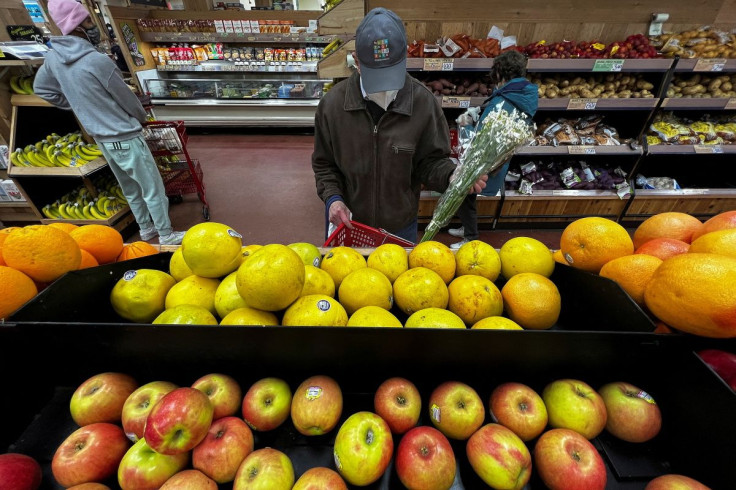Inflation, ‘The Other Tax,’ That Hits Americans Living Paycheck To Paycheck

The talk about a “billionaire tax,” which has dominated social media these days, has overshadowed the conversation about the “other tax,” inflation. Unlike the billionaire tax, the inflation tax is regressive. It cannot be avoided or shifted to the future with sophisticated financial planning and moving to another state or country.
The Fed's favorite inflation gauge, the Personal Consumption Expenditure (CPE), hit a 40-year high in February, ahead of hourly wages, making life harder for those who live paycheck to paycheck.
This week, the Bureau of Economic Analysis (BEA) reported that the PCE rose at an annual rate of 6.4% in February 2022, up from a revised 6% in January, the most significant gain since April 1983. In addition, the core PCE, which excludes the volatile components of food and energy, rose by 5.5%, the highest level since 1983.
PCE measures how much Americans spend on various goods and services, similar to the Consumer Price Index (CPI). But unlike the CPI, it captures changes in consumer behavior like substituting more expensive products for less expensive products. For instance, if the price of Apples went up this month, consumers may substitute them for less costly fruits, say oranges, which went down in price that month. Thus, it moderates the impact of inflation on consumer budgets. And that can explain the gap between the February CPI, which came at 7.9% and the February CPE, which came at 6.4%.
Nonetheless, inflation is historically high, driven by soaring food, energy, and housing expenses, no matter how you measure it. Moreover, these three items count for two-thirds of the PCE index, meaning that inflation hits the hardest on low-income households, which pay the most significant chunk of their income on these three necessities.
Meanwhile, unlike high-income households, low-income households have fewer opportunities to substitute high-priced with low-priced items.
Then there are transaction costs, which can make switching from one product or service to another very expensive. For instance, if rent goes up in one neighborhood but stays the same in another doesn't help low-income households, as changing residence involves a great deal of time and moving expenses.
In short, inflation acts as a regressive tax, hurting low-income Americans, who usually live paycheck to paycheck, the hardest. And, unlike a billionaire tax, it cannot be avoided or postponed indefinitely with sophisticated investment schemes and changes in residence. And the situation could be made worse as the Fed advances with its tightening cycle, raising the cost of credit, which usually makes it up for the shortfall of the family budget.
Meanwhile, the rising prices of essential goods and services have probably pushed some Americans who left the labor force during the pandemic to return to work, evidenced by a slight rise in labor force participation in March. And that could explain why consumer confidence held up last month.
"Consumer confidence was up slightly in March after declines in February and January," said Lynn Franco, Senior Director of Economic Indicators at The Conference Board. "The Present Situation Index rose substantially, suggesting economic growth continued into late Q1. Expectations, on the other hand, weakened further with consumers citing rising prices, especially at the gas pump, and the war in Ukraine as factors. Meanwhile, purchasing intentions for big-ticket items like automobiles have softened somewhat over the past few months as expectations for interest rates have risen."
"Nevertheless, consumer confidence continues to be supported by strong employment growth and thus has been holding up remarkably well despite geopolitical uncertainties and expectations for inflation over the next 12 months reaching 7.9 percent—an all-time high. However, these headwinds are expected to persist in the short term and may potentially dampen confidence as well as cool spending further in the months ahead."
That's a near certainty, as Washington doesn't have a reliable plan to address the problem. For instance, an attempt by the Biden administration to bring oil prices down by releasing oil from the country's strategic reserves doesn't seem to have made any significant difference thus far.
© Copyright IBTimes 2025. All rights reserved.






















